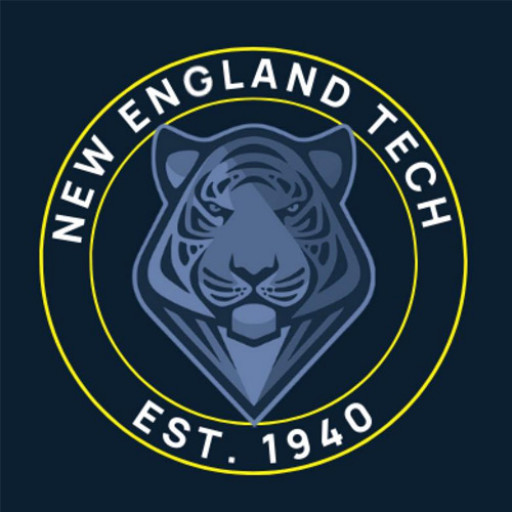<|output|>This vocational education and training program at Bedford College is designed to equip students with practical skills and knowledge needed to excel in their chosen industry. Offering a comprehensive curriculum, the program emphasizes hands-on learning to ensure that graduates are well-prepared for the demands of the modern workforce. Throughout the course, students will engage in a variety of workshops, industry-specific projects, and real-world scenarios that foster critical thinking, technical proficiency, and problem-solving abilities. The program is meticulously structured to balance theoretical understanding with practical application, promoting a deep comprehension of core concepts while enabling students to develop their skills in a supportive and innovative environment. Bedford College’s experienced faculty members bring industry insights and professional expertise, guiding students through the latest practices and standards in their field. Additionally, students gain access to state-of-the-art facilities and equipment, providing an authentic workplace experience. The program also emphasizes personal development, teamwork, and communication skills, recognizing their importance in professional success. Upon completion, graduates will receive a recognized qualification that enhances their employment prospects and prepares them for further training or career advancement. Bedford College’s strong links with local industries and employers facilitate work placements and networking opportunities, ensuring students are job-ready upon graduation. Whether you are looking to start a new career or upskill in your current profession, this vocational program offers a practical, industry-relevant education that opens doors to a wide range of exciting opportunities in your chosen field.
Fabrication and Welding Technology programs provided by Bedford College are designed to equip students with the fundamental and advanced skills necessary for careers in manufacturing, construction, and maintenance industries. This comprehensive coursework covers a wide range of vocational skills, including the principles of metal fabrication, welding techniques, safety procedures, and quality control.
Throughout the program, learners gain hands-on experience in various welding methods such as MIG, TIG, arc, and oxy-acetylene welding. The training emphasizes the importance of precision, safety compliance, and adherence to industry standards. Students are introduced to various fabrication processes, including cutting, bending, and assembling metal components, utilizing modern tools and machinery. Instruction includes both theoretical knowledge and practical application, ensuring students are well-prepared to operate in real-world environments.
The curriculum also explores blueprint reading and technical drawing skills, enabling students to interpret engineering plans accurately. Emphasis is placed on understanding material properties, welding metallurgy, and environmental safety considerations. Practical projects and assessments are incorporated throughout the program to evaluate learners' capabilities and readiness for employment.
Graduates of this program are qualified to work as welding technicians, fabricators, or maintenance personnel within diverse sectors such as construction, transportation, manufacturing, and energy. The program aims to foster not only technical proficiency but also soft skills such as teamwork, problem-solving, and effective communication.
Bedford College’s Fabrication and Welding Technology program is delivered by experienced instructors passionate about vocational training and industry standards. State-of-the-art equipment and facilities ensure students have access to realistic working conditions. Upon successful completion, students receive certification recognized by employers across the industry, supporting their career advancement and providing pathways to further education or specialized training. This program is ideal for individuals interested in developing practical skills that lead to rewarding employment opportunities in the fabricating and welding trades.
Program requirements for the Vocational Education and Training (VET) at Bedford College typically emphasize the importance of prior educational background, relevant experience, and a commitment to developing practical skills aligned with industry standards. Applicants are usually required to hold a minimum of a GCSE qualification or equivalent in relevant subjects, demonstrating a foundational level of academic proficiency. For some specialised vocational pathways, such as Construction or Health and Social Care, specific prerequisites may include prior coursework or experience in related fields, alongside satisfactory references and a personal statement outlining career aspirations and motivation to undertake the programme.
In addition, applicants must demonstrate a sufficient level of English language proficiency, often by providing results from recognized tests such as IELTS or equivalent, particularly for international students. Practical assessments and interviews may also be part of the selection process, aiming to evaluate candidates' commitment, aptitude, and readiness for intensive hands-on learning environments.
Enrollment is contingent upon meeting the admission criteria outlined in the program prospectus, which may include providing valid identification documents, proof of previous qualifications, and completing an application form accurately. For existing students or apprentices, compliance with contextual training requirements, adherence to health and safety regulations, and engagement in ongoing assessments are necessary for successful programme completion.
Furthermore, certain courses require students to have access to specialised equipment or facilities, which may involve prior health and safety training or certifications, especially in sectors like engineering, hospitality, or healthcare. As part of the program, students are expected to participate in work placements or industry simulations to develop real-world competencies. Successful completion of the coursework, practical assessments, and work-based learning components culminates in a vocational qualification recognized by employers and relevant industry standards.
In summary, the program's admission requirements are designed to ensure that applicants possess the foundational skills, relevant experience, and motivation necessary to succeed in a demanding vocational environment. Candidates are encouraged to consult the specific programme pages on the Bedford College website for detailed prerequisites, application procedures, and guidance on preparing their applications to align with the programme's objectives and industry expectations.
Want to improve your English level for admission?
Prepare for the program requirements with English Online by the British Council.
- ✔️ Flexible study schedule
- ✔️ Experienced teachers
- ✔️ Certificate upon completion
📘 Recommended for students with an IELTS level of 6.0 or below.
The financing options for vocational education and training programs at Bedford College are designed to accommodate a diverse range of students and ensure accessibility to quality education. Funding for these programs primarily comes from government sources, including state grants and subsidies aimed at promoting vocational skills development and reducing unemployment. Students may be eligible for financial assistance programs such as vocational education grants, which cover tuition fees and, in some cases, additional costs related to training materials and equipment.
In the UK, vocational courses at Bedford College are often funded through the Adult Education Budget (AEB), which supports adult learners pursuing vocational qualifications. This means that for eligible students, tuition fees may be reduced or waivers provided depending on their age, employment status, or residency. Additionally, apprenticeships are a significant component of Bedford College's vocational training, with funding shared between the government and employers. Apprenticeship funding covers both on-the-job training and related classroom instruction, allowing students to gain practical skills while earning a wage.
For younger students, such as school leavers, funding may be available through government bursaries or funding schemes specifically designed to encourage participation in vocational education. Furthermore, some programs may be funded through employer sponsorship or partnerships, where local industries provide financial support in exchange for tailored training that addresses their workforce needs.
Students from low-income backgrounds may also access special financial support packages, including grants for living expenses or transportation costs, to facilitate their attendance. Bedford College provides guidance and support services to help students navigate available funding opportunities and to assist with application processes.
Part-time students or those enrolled in evening courses might have access to flexible payment plans or installment options to manage tuition costs more effectively. Moreover, for international students enrolling in vocational programs, different fee structures and possible scholarship opportunities are available, though these are generally not subsidized by UK government funding.
Overall, the financial structure of Bedford College's vocational education programs is designed to promote inclusivity and support a wide range of learners, facilitating access through government funding, employer sponsorship, and financial aid schemes. Detailed information about specific funding eligibility and application procedures can be obtained directly from the college's admissions and financial services departments.
The Vocational Education and Training (VET) programs at Bedford College are designed to equip students with practical skills and industry-specific knowledge necessary for successful careers in various sectors. These programs focus on combining theoretical learning with hands-on experience, ensuring that graduates are well-prepared to meet the demands of the modern workforce. Bedford College offers a wide range of vocational courses tailored to different industries, including health and social care, engineering, business administration, hospitality, creative arts, and information technology.
The VET programs typically include a combination of classroom-based instruction, practical workshops, industry placements, and assessments that mirror real-world scenarios. This integrated approach ensures that students not only gain academic understanding but also develop essential soft skills such as communication, teamwork, problem-solving, and adaptability. The programs are designed in collaboration with industry professionals and employers, ensuring that the curriculum remains relevant and up-to-date with current industry standards and technological advancements.
Students enrolled in Bedford College's VET programs benefit from state-of-the-art facilities, including specialized laboratories and training centers that replicate working environments. Industry placements are often secured through the college’s extensive network of partners, providing students with valuable work experience. Additionally, the college offers dedicated support services such as career guidance, mentorship, and progression planning to help students achieve their personal and professional goals.
The duration of vocational courses varies depending on the qualification level and specific program but generally ranges from a few months to two years. Many programs lead to nationally recognized qualifications such as NVQs, City & Guilds, or equivalent diplomas, which enhance employability and provide pathways to higher education or advanced training. Bedford College also emphasizes a supportive learning environment, encouraging diversity and inclusion, with flexible learning options available to accommodate different student needs.
Overall, Bedford College’s VET offerings aim to produce competent, confident, and industry-ready graduates who can contribute effectively to their chosen professions and adapt to changing industry requirements. These programs are ideal for learners who prefer practical, career-focused education and wish to develop applicable skills that can lead to immediate employment or further academic pursuits.









